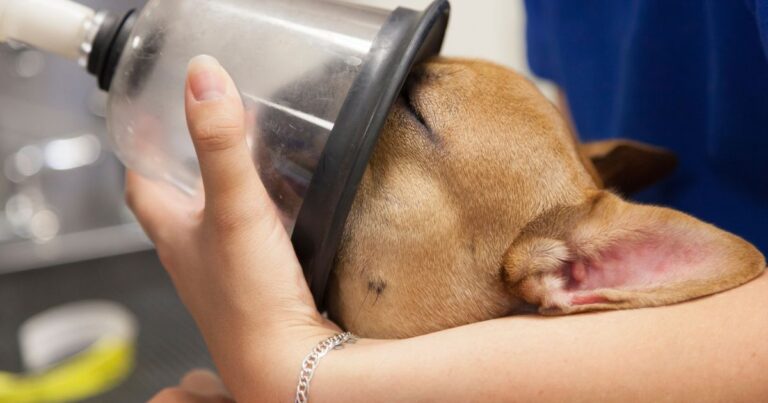French Bulldog Von Willebrand’s Disease
Table of Contents
French Bulldog Von Willebrand’s Disease
| Aspect | Description |
|---|---|
| Disease | Von Willebrand’s Disease |
| Breed | French Bulldog |
| Symptoms | Uncontrollable bleeding, prolonged bleeding times |
| Diagnosis | Buccal mucosal screening time, laboratory blood tests |
| Treatment | Medications like DDAVP, transfusions of fresh frozen plasma or cryoprecipitate |
Ever wondered why your French Bulldog might bruise like a peach? It could be Von Willebrand’s Disease, a common but little-known condition. Stick around as we unravel this mystery, one paw print at a time!
Introduction
As a French Bulldog owner, it’s essential to understand the health issues that can affect our beloved pets, one of which is Von Willebrand’s Disease. This inherited bleeding disorder is not exclusive to humans; it can also affect our furry friends, including French Bulldogs. In this comprehensive guide, we will delve into the world of Von Willebrand’s Disease, its impact on French Bulldogs, and how we can manage it to ensure our pets lead a healthy and happy life.

While there’s no cure for Von Willebrand’s Disease, various treatment options can manage the symptoms and improve the quality of life for our French Bulldogs.
Key Facts about Von Willebrand’s Disease
- It’s an inherited bleeding disorder.
- It affects both humans and dogs, including French Bulldogs.
- It’s characterized by a deficiency or dysfunction of a protein called von Willebrand factor.
- The severity of the disease can vary greatly among dogs.
- There’s no cure for Von Willebrand’s Disease, but various treatment options can manage the symptoms.
What is Von Willebrand’s Disease?
Von Willebrand’s Disease, often abbreviated as vWD, is an inherited bleeding disorder that affects both humans and dogs, including French Bulldogs. Named after the Finnish physician Erik von Willebrand who first described it, vWD is characterized by a deficiency or dysfunction of a protein called von Willebrand factor, which plays a crucial role in the blood clotting process. This deficiency can lead to prolonged bleeding times, making even minor injuries potentially dangerous.
Symptoms of Von Willebrand’s Disease
| Symptom | Description |
|---|---|
| Uncontrollable bleeding | Bleeding that doesn’t stop as expected |
| Prolonged bleeding times | Bleeding for longer than normal after an injury |
| Spontaneous bleeding | Bleeding that occurs without any known cause |

How Von Willebrand’s Disease Affects French Bulldogs
In French Bulldogs, Von Willebrand’s Disease can lead to symptoms such as uncontrollable bleeding, which can be quite alarming if you’re not prepared. This bleeding can occur after an injury, surgery, or even spontaneously in severe cases. It’s important to note that the severity of the disease can vary greatly among dogs. Some may experience only mild symptoms, while others may face life-threatening bleeding episodes.
The Role of Von Willebrand Factor and Platelets
The Von Willebrand factor is a protein that plays a crucial role in blood clotting, and its deficiency can lead to Von Willebrand’s Disease. This protein works by binding to platelets, the tiny blood cells responsible for forming clots to stop bleeding. In the absence of sufficient von Willebrand factor, the platelets cannot adhere properly to the blood vessel walls to form a clot, leading to prolonged bleeding times.
Diagnosing Von Willebrand’s Disease in French Bulldogs
Diagnosing Von Willebrand’s Disease in French Bulldogs involves a series of tests, including the buccal mucosal screening time and laboratory blood tests. The buccal mucosal screening time is a simple test that measures the time it takes for a small wound to stop bleeding. Laboratory blood tests, on the other hand, can measure the amount and function of von Willebrand factor in the blood. Early diagnosis is crucial in managing the disease and preventing serious bleeding episodes.
Diagnosis Methods for Von Willebrand’s Disease
| Method | Description |
|---|---|
| Buccal mucosal screening time | Measures the time it takes for a small wound to stop bleeding |
| Laboratory blood tests | Measures the amount and function of von Willebrand factor in the blood |
Treatment Options for French Bulldogs with Von Willebrand’s Disease
While there’s no cure for Von Willebrand’s Disease, various treatment options can manage the symptoms and improve the quality of life for our French Bulldogs. These may include medications like DDAVP, which can temporarily increase the levels of von Willebrand factor in the blood. In severe cases, transfusions of fresh frozen plasma or cryoprecipitate, which contain high concentrations of von Willebrand factor, may be necessary.
Treatment Options for Von Willebrand’s Disease
| Treatment | Description |
|---|---|
| DDAVP | A medication that can temporarily increase the levels of von Willebrand factor in the blood |
| Transfusions | Transfusions of fresh frozen plasma or cryoprecipitate, which contain high concentrations of von Willebrand factor |

The Role of Breeders in Reducing the Incidence of Von Willebrand’s Disease
Breeders play a significant role in reducing the incidence of Von Willebrand’s Disease in French Bulldogs through screening testing and responsible breeding practices. By testing potential breeding dogs for vWD, breeders can make informed decisions and avoid breeding dogs that carry the disease. This is a crucial step in reducing the prevalence of this disorder in the French Bulldog population.
Roles of Breeders in Reducing the Incidence of Von Willebrand’s Disease
- Conducting screening tests for potential breeding dogs.
- Making informed decisions to avoid breeding dogs that carry the disease.
- Educating potential dog owners about the disease.
- Working with vets to ensure the health of their breeding dogs.
- Promoting responsible breeding practices.
Medications and Von Willebrand’s Disease
Certain medications, such as non-steroidal anti-inflammatory drugs, can exacerbate the symptoms of Von Willebrand’s Disease and should be used with caution. These medications can interfere with platelet function, further impairing the blood’s ability to clot. If your French Bulldog has vWD, it’s essential to discuss any medications with your vet to ensure they are safe for your pet.
The Importance of Routine Screening for Von Willebrand’s Disease
Routine screening for Von Willebrand’s Disease is crucial in early detection and management of this condition in French Bulldogs. Regular check-ups and blood tests can help identify any abnormalities in your pet’s blood clotting ability, allowing for early intervention and management. Remember, early detection is key in managing vWD and ensuring your French Bulldog leads a healthy and happy life.
Importance of Routine Screening for Von Willebrand’s Disease
- Early detection of any abnormalities in your pet’s blood clotting ability.
- Allows for early intervention and management of the disease.
- Helps to prevent serious bleeding episodes.
- Provides peace of mind for pet owners.
- Contributes to the overall health and well-being of your French Bulldog.
Tips for Managing a French Bulldog with Von Willebrand’s Disease
- Regular vet check-ups are crucial for early detection and management.
- Avoid medications that can exacerbate the symptoms, such as non-steroidal anti-inflammatory drugs.
- Be prepared for potential bleeding episodes.
- Consider a medical alert tag for your dog’s collar to inform others of the condition in case of an emergency.
- Keep your vet’s contact information handy at all times.

Understanding Von Willebrand’s Disease is essential for every French Bulldog owner, as it allows us to provide the best care for our furry friends
Conclusion
Understanding Von Willebrand’s Disease is essential for every French Bulldog owner, as it allows us to provide the best care for our furry friends. By staying informed and proactive, we can ensure our French Bulldogs live a long, healthy, and happy life. If you want to learn more about French Bulldog health and care, feel free to explore other articles on French Bulldog Health and Care and French Bulldog health issues.
See also my pages on French Bulldog Intervertebral Disc Disease and French Bulldog Hypothyroidism
Disclaimer: This article is intended for informational purposes only. It is not meant to be a substitute for professional veterinary advice, diagnosis, or treatment. Always seek the advice of your veterinarian with any questions you may have regarding your pet’s health.
Frequently Asked Questions
What dog breed is most commonly affected with von Willebrand’s disease?
While von Willebrand’s disease can affect any breed, it’s more common in some breeds than others. French Bulldogs, along with Doberman Pinschers, German Shepherds, and Golden Retrievers, are among the breeds often affected.
What are the symptoms of von Willebrands disease in dogs?
Symptoms can include prolonged bleeding, even from minor wounds, nosebleeds, bleeding gums, blood in the urine or stool, and excessive bleeding during heat cycles or after whelping.
How do you treat von Willebrand’s disease in dogs?
While there’s no cure, treatments can manage symptoms. These may include medications to increase von Willebrand factor levels in the blood, and in severe cases, blood transfusions.
What is VWF type 1 dog?
VWF type 1 refers to the most common and mildest form of von Willebrand’s disease in dogs. Dogs with this type have lower than normal levels of von Willebrand factor.
Can von Willebrand disease be cured in dogs?
There’s currently no cure for von Willebrand’s disease in dogs. However, with proper management and care, dogs with this condition can lead normal, healthy lives.
Does von Willebrand disease get worse?
The severity of von Willebrand’s disease can vary and doesn’t necessarily get worse over time. However, dogs with this condition may experience more severe bleeding episodes if injured or during surgery.
What is von Willebrand disease dogs type 2?
Type 2 von Willebrand’s disease in dogs is a less common form where the von Willebrand factor doesn’t function properly, leading to more severe bleeding symptoms than type 1.
What is the rarest von Willebrand disease?
Type 3 von Willebrand’s disease is the rarest and most severe form. It’s characterized by a complete lack of von Willebrand factor, leading to severe bleeding episodes.
Is von Willebrand disease autoimmune?
No, von Willebrand’s disease is not an autoimmune condition. It’s a genetic disorder that affects the blood’s ability to clot.
Is von Willebrand disease genetic?
Yes, von Willebrand’s disease is a genetic disorder. It’s inherited, which means it’s passed down from parent dogs to their puppies.
How do you test for von Willebrand disease?
Testing for von Willebrand’s disease involves a series of blood tests, including a buccal mucosal screening time test and laboratory blood tests to measure the amount and function of von Willebrand factor.






